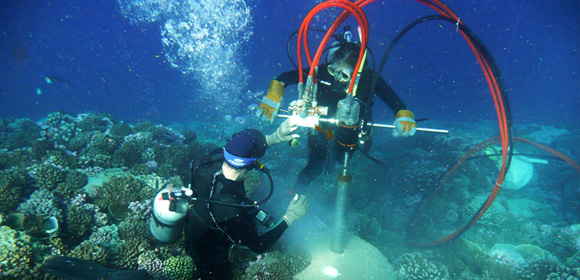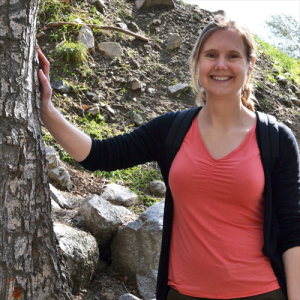
Climate change is bad, but just how bad wasn’t known until a recent study co-authored by assistant professor of environmental analysis Branwen Williams. Her research revealed today’s rate of ocean chemistry change to be unparalleled in severity than any other period on Earth. And that’s with data dating back 300 million years.
Published in Science March 2, “The Geological Record of Ocean Acidification” has since garnered the attention of Time and environmentalists everywhere. Williams and her co-authors researched changes in seawater chemistry, focusing on eras of increased oceanic acidity.
The results were then compared to what is happening in our oceans now – the kind of ocean acidification seen today has only occurred once before in the earth’s history. Called the Paleocene-Eocene Thermal Maximum, that period was marked by the extinction of thousands of ocean species.
This level of “predicted ocean acidification resulting from anthropogenic burning of fossil fuels is unprecedented in the past 300 million years,” Williams says.
In other words, this is the worst it’s ever been.
 While the comparison isn’t perfect, Williams hopes her research helps people understand the severe problem of human waste and pollution in our oceans and that this understanding influences people’s everyday resource consumption for the better.
While the comparison isn’t perfect, Williams hopes her research helps people understand the severe problem of human waste and pollution in our oceans and that this understanding influences people’s everyday resource consumption for the better.
“I think as a society we assume the ocean can indefinitely absorb any anthropogenic influence,” Williams says, “but this is not true.”
Williams encourages students interested in this topic to look into her Environmental Analysis Program, especially the upper level Global Climate Change and Oceanography courses.
For more information on “The Geological Record of Ocean Acidification,” you can find the original article at Science here, and Bryan Walsh’s article for Time‘s Ecocentric Blog here. For more information on the W.M. Keck Science Department of Claremont McKenna, Pitzer, and Scripps Colleges, please visit their website.
The W.M. Keck Science Department is the interdisciplinary home to all biology, chemistry, and physics faculty for Claremont McKenna, Pitzer, and Scripps colleges. The department is administered cooperatively and is housed within an 81,000-square-foot Center, located at the intersection of the three colleges. The department offers 13 discrete degree options, including dual-degree programs in partnership with schools of engineering and majors in conjunction with disciplines outside the sciences. The W.M. Keck Science Department provides comprehensive, interdisciplinary instruction in small class settings and numerous opportunities for students to conduct research. Our graduates enter a significant range of careers and enjoy acceptance into prestigious graduate research and health science programs.

